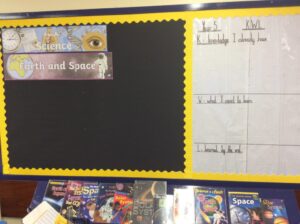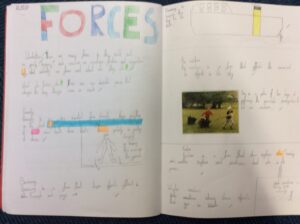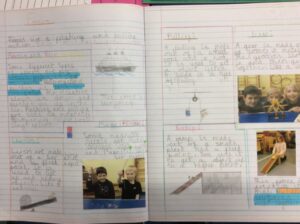‘Our science curriculum develops children’s scientific knowledge and understanding; fostering their curiosity to investigate the processes that shape the world around them.’
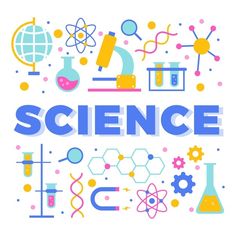
Science Intent Statement:
Our curriculum:
- Develops an understanding of the nature, processes and methods of science through different types of enquiries that help them to ask and answer relevant questions about the world around them.
- Builds upon the learning and skill development of the previous years, ensuring pupils are equipped with the scientific knowledge required to understand the uses and implications of science, today and for the future.
- Develops the essential scientific enquiry skills to deepen pupils’ scientific knowledge. These skills are embedded into lessons to ensure they are being developed throughout the school and new vocabulary and challenging concepts are introduced through direct teaching.
- Provides opportunities for our pupils to use a range of methods to communicate their scientific information and present it in a systematic, scientific manner, including digital technology, diagrams, graphs and charts.
- Embeds a respect for the materials and equipment pupils handle with regard to their own, and other pupils’ safety.
- Provides problem solving and investigation opportunities that allow pupils to lead their own learning. Pupils are encouraged to ask their own questions and are given opportunities to use their scientific skills and research and discover the answers.
Our intention, throughout school, is to develop their understanding of scientific ideas by using different types of scientific enquiry to answer their own questions using both formal and practical lessons
During their time at Myddle, we aim to equip children with the knowledge required to use and implement Science today, tomorrow and for their futures.
Implementation:
How Science is taught at Myddle:
To ensure high standards of teaching and learning in science, we implement a curriculum that is progressive throughout the school. Planning for science is a process in which all teachers ensure that the school gives full coverage of The 2014 National Curriculum programmes of study for Science and Understanding of the World in the Early Years Foundation Stage.
Wherever possible, Science is linked to class topics. At the start of each topic teachers take time to find out what our children already understand and want to find out. Our teachers use this to adapt and extend the curriculum to match children’s interests and needs, current events, the use of any support staff and the resources available. We include the use of technology, wherever appropriate, to aid teaching and learning. Through teacher modelling and planned questioning we want our children to wonder about and be amazed and surprised by the world around them as we recognise that our children sometimes lack experiences. Key scientific language is introduced to the children at the start of new unit where their understanding is assessed. The vocabulary is then modelled throughout lessons enabling our children to become more familiar with the terms and be able to the them accurately. Once the unit has been competed the children are again assessed on their understanding of this vocabulary. Teachers are also encouraged to plan in trips and visitors to enhance our children’s learning experience. We also use our rural community and school grounds as much as possible to bring science to life and put into context.
At Myddle, we aspire to promote children’s independence and for all children to take responsibility in their own learning. Pupils often mark against success criteria to assess their own understanding during a lesson. Attainment is tracked through the use of Cornerstones assessment materials and the National Curriculum Progression.
Impact:
The successful approach to the teaching of science at Myddle CE Primary School will result in a fun, engaging, high quality science education, that provides children with the foundations for understanding the world that they can take with them once they complete their primary education.
Assessment at Myddle CE Primary School is teacher based and formed using formal strategies at KS2 (e.g. Grammarsaurus assessments and more informal strategies at KS1 (Use of mind maps, double page spreads, verbal/written outcomes).
Formative assessment is used as the main tool for assessing the impact of Science at Myddle CE Primary School as it allows for misconceptions and gaps to be addressed more immediately rather than building on insecure scientific foundations.
Children at Myddle CE Primary School will:
- demonstrate a love of science work and an interest in further study and work in this field
- retain knowledge that is pertinent to Science with a real life context.
- be able to question ideas and reflect on knowledge.
- be able to articulate their understanding of scientific concepts and be able to reason scientifically using rich language linked to science.
- demonstrate a high love of mathematical skills through their work, organising, recording and interpreting results.
- work collaboratively and practically to investigate and experiment.
- achieve age related expectations in Science at the end of their cohort year.
Science Progression – Knowledge and Skills overview – Y1-Y6
Science – PLAN progression in skills throughout KS1 and KS2
Myddle CE Primary School Long Term Plan Overview
Myddle CE Primary School Science Action Plan 2025-2026
Science Action Plan 2025-2026
Science policy Myddle
Scientific enquiry
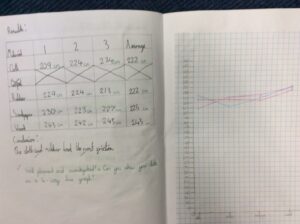
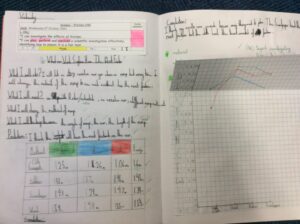
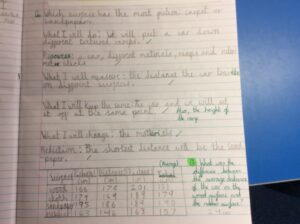
Promoting Science throughout the school:
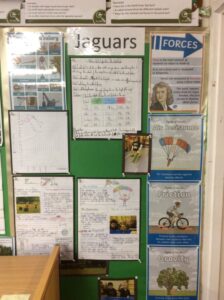
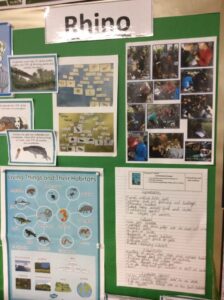
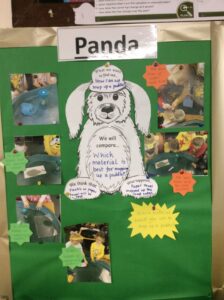
Prior learning and Post learning assessment:
